Abe's shrine visit a flagrant denial of justice
Updated: 2013-12-29 00:23
(Xinhua)
|
||||||||
BEIJING - Japanese Prime Minister Shinzo Abe's visit to the notorious Yasukuni Shrine in Tokyo that honors Japan's war dead including convicted war criminals in World War II is but a flagrant denial of the just trials of Japanese warmongers guilty of crimes against humanity.
Abe on Thursday visited the war shrine, which has been seen as a symbol of Japan's past militarism as it enshrines 14 Class-A WWII war criminals.
It is the first time in seven years a sitting Japanese prime minister has visited the shrine. Former Prime Minister Junichiro Koizumi paid a visit in August 2006, souring relations between Japan and its Asian neighbors.
The Yasukuni Shrine, built in 1869 under Emperor Meiji, highlights Japan's wartime nationalism and is regarded as a spiritual tool and symbol of Japanese aggression in WWII.
Among the 2.5 million soldiers honored in the shrine were 14 convicted Class-A WWII criminals, who masterminded a brutal war and led the Japanese army to heinous atrocities in its war of aggression, including the Pearl Harbor attack and invasion of China, Korea and other countries.
In China alone, 35 million lives were lost and huge material losses were caused. After China's then capital city of Nanjing was occupied by Japanese troops on December 13, 1937, at least 300,000 Chinese were killed over the course of six weeks by barbarian Japanese soldiers.
Just trails
In 1946, the International Military Tribunal for the Far East, also known as the Tokyo Trials, was convened to try Japanese war criminals in implementation of the Cairo Declaration, the Potsdam Declaration, the Instrument of Surrender and the Moscow Conference. In particular, the Potsdam Declaration had called for trials and purges of those who had "deceived and misled" the Japanese people into war.
The court formally prosecuted 28 Japanese Class-A war criminals, including wartime Prime Minister Hideki Tojo, and sentenced Tojo and six other criminals to death.
The tribunal, operating from early 1946 until the end of 1948, was composed of 11 judges from 11 nations, including the United States, China, the United Kingdom, the Soviet Union and Australia.
The international trials took two years and seven months, held 818 open hearings, involved 419 witnesses attending the court and 779 sending their written testimonies, with verdicts totaling 1,231 pages and taking seven days to read.
The tribunal was the biggest post-WWII international trials in scale and duration, surpassing the Nuremberg trials.
Both the legal documents backing the Tokyo Trials and the conviction of the war criminals have been recognized by Japan.
Enshrining of convicted war criminals
Since 1978, the convicted war criminals have been enshrined in Yasukuni.
The Yasukuni Shrine was so notorious that the current Japanese Emperor Akihito has not visited the shrine since ascending to the throne in 1989. Wartime Emperor Hirohito, known posthumously as Emperor Showa, refrained from visiting the shrine.
Given the clear fact that the conviction of the war criminals is recognized by Japan, Abe's choice to visit the Yasukuni Shrine was a deliberate attempt to deny the historical conclusion on Japanese militarism, and challenge the post-war world order.
The visit was also meant to whitewash Japanese aggression and colonial rule. It has aroused painful memories Japan has brought to the Chinese people and other nations, and has drawn strong condemnation and indignation from both home and abroad.
Since taking office, Abe has adopted right-leaning policies, taking irresponsible attitudes toward Japan's war history by refusing to apologize to its Asian neighbors and trying to revise Japan's pacifist constitution.
Abe has shown his true colors by visiting the Yasukuni Shrine. His pledges to an "active pacifist" road turned out to be active militarism.
The flagrant challenge to international justice and human conscience has given Japan's neighbors and the international community every reason to be highly vigilant and deeply concerned over the road Japan will take in the future.
- Former FM slams Abe's shrine visit
- Media frowns upon Abe's visit to shrine
- UN chief voices regret over Abe's Yasukuni visit
- Abe's war shrine visit sparks protest
- Abe 'hypocritical' for shrine visit
- Defiant Abe a real danger
- Anger over Abe's shrine visit
- China flays Abe's shrine visit
- US disappointed over Abe's Yasukuni visit
- South Korea angry about Abe's shrine visit
- Japan political parties criticize Abe's visit
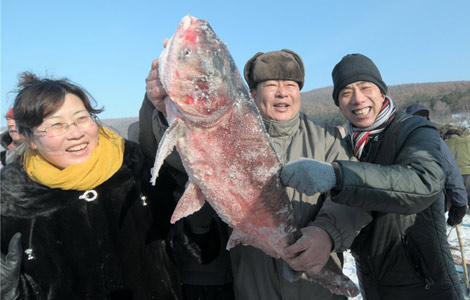
 Ice fishing in NE China
Ice fishing in NE China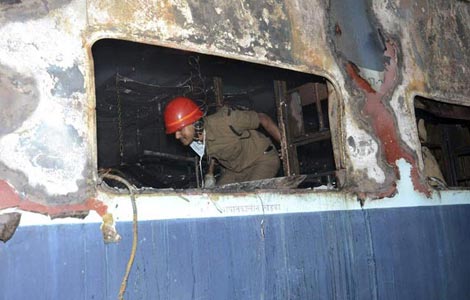
 Fire on express train in India kills at least 26
Fire on express train in India kills at least 26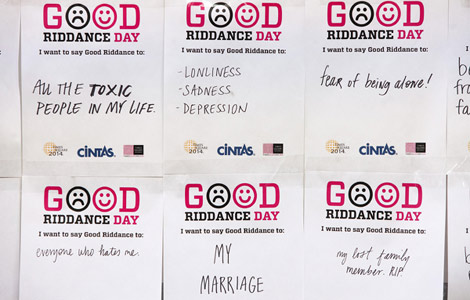
 Times Square visitors purge bad memories
Times Square visitors purge bad memories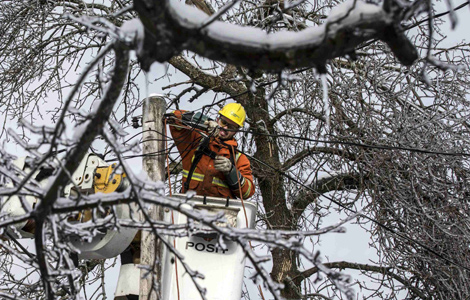
 Ice storm leaves many without power in US, Canada
Ice storm leaves many without power in US, Canada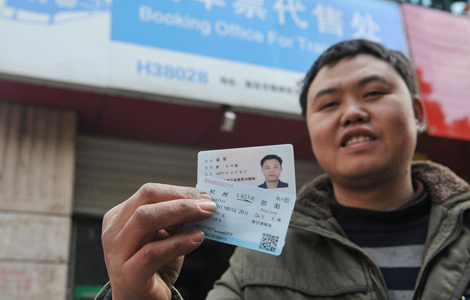
 'Chunyun' train tickets up for sale
'Chunyun' train tickets up for sale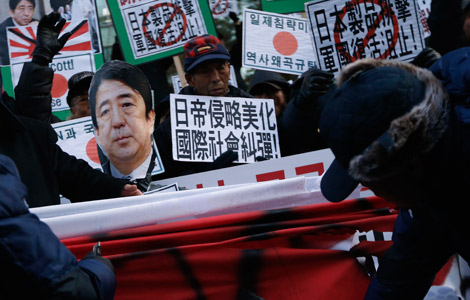
 Abe's war shrine visit sparks protest
Abe's war shrine visit sparks protest
 LeBron James is AP's Male Athlete of the Year
LeBron James is AP's Male Athlete of the Year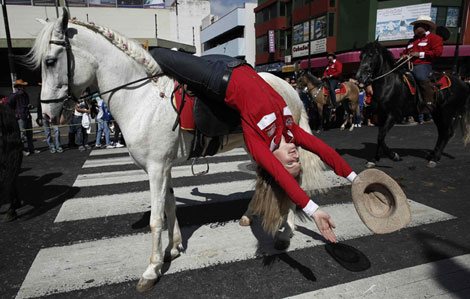
 Year-end horse-ride parade California
Year-end horse-ride parade California
Most Viewed
Editor's Picks

|

|

|

|

|

|
Today's Top News
High stakes for US people losing jobless benefit
Abe's shrine visit a denial of justice
China's high-speed rail on fast track
US judge upholds NSA program
India train fire kills at least 26
China reports 12th vaccine-related death
China begins e-commerce legislation
Li drops in to help realize home dream
US Weekly

|

|







